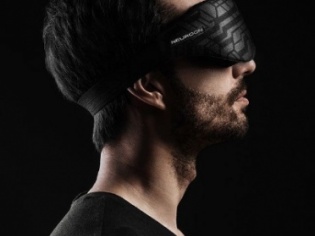-
Team TechTree
10:49 01st Jun, 2016
A New Wearable Device That Helps Beat Jet Lag | TechTree.com
A New Wearable Device That Helps Beat Jet Lag
A Stanford University study demonstrates the effectiveness of Light Therapy in helping long-haul travelers to readjust their biorhythm.

Shuttling between cities for business or vacation, all travelers dread jet lag. The disruption of sleep and the body trying to adapt to the new biorhythm can take a toll on one’s health. Of late travelers are seeking cutting-edge technology to help combat sleep disruption, fatigue and poor concentration that often accompanies jet lag. A recent study at Stanford University demonstrated how exposing a person to short flashes of light during sleep could be the secret to minimizing these effects. Through manipulating levels of melatonin in the body, there was a significant speed-up in the process of the body adjusting to its rescheduled circadian rhythm. Using this principle, Neuroon is a revolutionary wearable device that launched in December 2015, providing jet lag therapy for its user.
Through combining advanced brain wave and pulse measurement technology with a comfortable sleeping mask commonly used in air travel, Neuroon uses Bright Light Therapy to improve sleep efficiency, and most importantly to alleviate jet lag. Using built-in biometric sensors, the Neuroon system monitors the user's sleep architecture, providing advanced sleep analysis, calculates a sleep efficiency score, and offers optimization advice. Of all the consumer-grade sleep trackers, Neuroon is the most sophisticated. It tracks light, deep, REM, and sleep interruptions, conveniently displaying the totals in a daily dashboard. Neuroon is comprised of three components: a comfortable mask made of soft, hypoallergenic material, the Smartpack, which contains the device's sensors and electronics encased in medically certified silicone, and the Neuroon app that controls the mask wirelessly using Bluetooth.
Jet Lag Blocker is one of the main features of the Neuroon which helps combat the sleep problems associated with rapid time zone changes. After setting the travel destination in the mobile app, the mask automatically fine-tunes the appropriate light therapy during sleep (without interfering with it) and offers a number of recommendations to help the user optimize their circadian rhythm while traveling. For the best results users should start the therapy several days before traveling. By adjusting a person's biorhythm before their travel, the Neuroon can effectively minimize the effects of a long-distance trip before they occur.
TAGS: Neuroon, Wearable Devices, Bluetooth-enabled devices, Mobile App
-->News Corner
- DRIFE Begins Operations in Namma Bengaluru
- Sevenaire launches ‘NEPTUNE’ – 24W Portable Speaker with RGB LED Lights
- Inbase launches ‘Urban Q1 Pro’ TWS Earbuds with Smart Touch control in India
- Airtel announces Rs 6000 cashback on purchase of smartphones from leading brands
- 78% of Indians are saving to spend during the festive season and 72% will splurge on gadgets & electronics
- 5 Tips For Buying A TV This Festive Season
- Facebook launches its largest creator education program in India
- 5 educational tech toys for young and aspiring engineers
- Mid-range smartphones emerge as customer favourites this festive season, reveals Amazon survey
- COLORFUL Launches Onebot M24A1 AIO PC for Professionals







TECHTREE